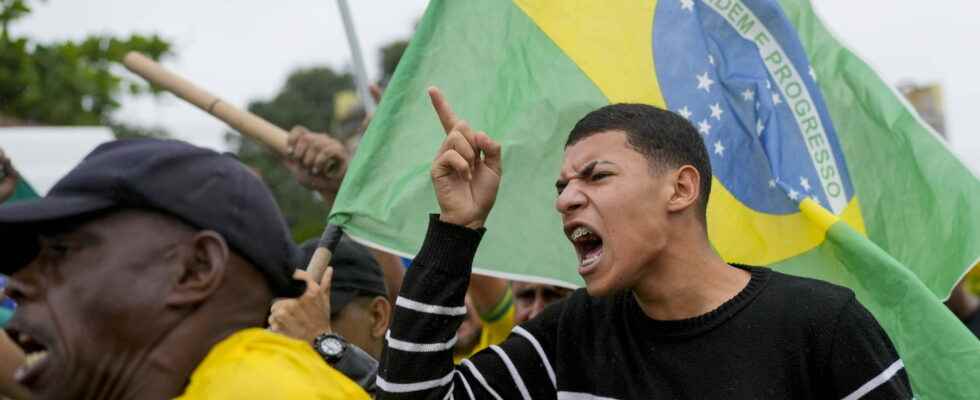ELECTION BRAZIL. Two days after the announcement of the presidential result in Brazil, Bolsonaro conceded defeat to Lula. The ex-president, however, remained ambiguous as to the response of Bolsonarist activists, leaving the door open to “peaceful demonstrations”.
[Mis à jour le 2 novembre à 11h28] End of tensions in Brazil? Jair Bolsonaro finally spoke more than 48 hours after the announcement of the result of the presidential election to concede, more than recognize, his defeat against Lula. The outgoing president did not have a single word for his elected rival to succeed him but indicated “respecting the Constitution” and “authorizing” the transition with the left-wing politician from November 1, 2022 until the end of November. inauguration of January 1, 2023. Bolsonaro’s speech, which lasted barely two minutes, did not, however, allay the fears of Brazilians who fear a wave of protest from Bolsonarist activists dissatisfied with the result of the ballot. The far-right politician clarified that “peaceful demonstrations will always be welcome” to defend the ideas of Bolsonarists with “several forces across the country, our dreams are always stronger than ever, we are for order and progress”.
A small sentence that casts great doubt and a risk on Brazil. The country is already partly paralyzed by roadblocks operated by pro-Bolsonaro truck drivers since October 30, the day of the presidential election. After the announcement of the results, several hundred demonstrations were also organized throughout the country, but the gatherings remained small, bringing together 50 to 100 people, according to Joao Alencar, correspondent for BFM TV in Sao Paulo. For the moment these mobilizations remain passive but the dissatisfaction of Bolsonarist militants who, like the outgoing president, cry injustice against electoral fraud is only growing.
The possible transition without contesting the result of the election in Brazil?
It was not Jair Bolsonaro but one of his ministers who, on Tuesday November 1, assured that the transition with Lula was “authorized” and would be done without incident. The news should satisfy Lula’s camp and the future president of Brazil, who a few hours after his victory called on Bolsonaro to bow to the verdict rather than stand in the way of his victory and his coming to power: “I need to know if the president we beat will allow a transition to take place,” Lula said after the results were announced. The transition has theoretically already begun. Lula mandated a team of 50 people to integrate the mysteries of power and understand the functioning of the various state bodies in addition to preparing for Lula’s arrival as president.
The transition should go well behind the scenes with the authorization of Bolsonaro but also thanks to the presence of politicians from the center right who, in the hours following the announcement of the results, recognized Lula’s victory. Still, during the transition and once in power, Lula will be confronted with the Bolsonarist movement still very present in Brazil.
The contestation of the result of the election in Brazil still possible for Bolsonaro?
The contestation of the result of the presidential election in Brazil is a priori no longer in the projects of Jair Bolsonaro. The outgoing president has half-word admitted his defeat while accusing the Brazilian electoral system of having favored Lula thanks to hypothetical frauds allowed by electronic headlines. These unfounded accusations have been repeated by the politician for more than a year and taken seriously by his supporters. By having conceded his defeat and assured to follow the rules dictated by the Brazilian Constitution, Bolsonaro closed the door of a possible dispute on the other hand he did not extinguish the embers which smoke among his militants. By calling for demonstrations, the outgoing president leaves the way open to possible excesses.
Bolsonaro made this call knowingly as activists of the far-right movement have said since September that they are capable of taking to the streets to keep the outgoing and defeated president in power. This is what some do by keeping a peaceful attitude but the aggressiveness and radicalism of other supporters still raise fears of the formation of riots even if the risk seems reduced. Tensions are therefore far from over in Brazil.
